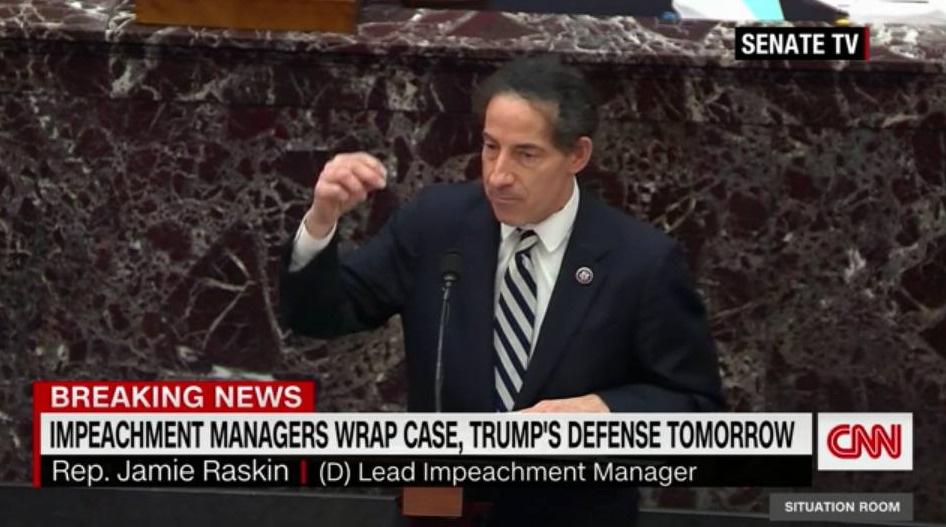The Republican Party represents an existential threat to civil liberty, the Constitution of the United States, and the well-being of the national body politic. In the face of overwhelming evidence, a majority of Republican Senators have refused to impeach Donald Trump, the 45th President of the United States, for his documented role in inciting the seizure of the U. S. Capitol by a mob intent on destruction and murder. The Republican Senators chose political expediency and they have earned dishonor.
By doing so, Republicans who voted to acquit Trump have chosen illegal action over lawful protest as an accepted means of political expression. Two legal doctrines adopted by the Supreme Court describe the present threat posed by the Republican Party. In the 1919 case of Schenck vs. United States, Charles Schenck and Elizabeth Baer were convicted of distributing flyers urging draft-age men to resist induction during World War I in violation of the Espionage Act passed by the Congress in 1917. The case went to the Supreme Court and in the unanimous opinion written by Justice Oliver Wendell Holmes the Court upheld the convictions, claiming that in serious circumstances wherein the encouragement of criminal actions posed a “clear and present danger” of succeeding, such encouragement was punishable.
The test was modified in the 1951 case, Dennis v. United States, which by a 6-2 vote the Court found that Eugene V. Dennis, General Secretary of the Communist Party of the United States, did not enjoy the rights of free speech and assembly to organize a plot intended to violently overthrow the government of the United States (Justices Hugo Black and William O. Douglas dissenting). In the plurality opinion, Chief Justice Carl Vinson argued that the government did not have to await the actual onset of a violent putsch organized to overthrow it before taking action.
In 1969, the Court replaced the test doctrine of Clear and Present Danger in the case of Brandenburg v. the United States, in which Clarence Brandenburg, head of a Ku Klux Klan faction in rural Ohio, asked a local radio station to cover a rally during which Klansmen called for a march on Congress to protest their continued suppression of the white race by the President, Congress, and the Supreme Court. Brandenburg was fined and sentenced to ten years in prison by Ohio courts, but his appeal was taken up by the Supreme Court, which reversed his conviction and upheld his rights to free speech. While refusing to punish “inflammatory speech” in the abstract, the Court did allow that the government could punish such speech if it was “directed to inciting or producing imminent lawless action and is likely to incite or produce such action.”
In these cases, the actions of Trump and his rioters defied the legal tests prescribed in a Clear and Present Danger and Imminent Lawless Action. Trump’s incitement of violent sedition represents a dramatic and egregious violation of public trust and his own constitutional vow to “preserve, protect and defend the Constitution of the United States.” By ratifying these actions, the Republican Party defines itself as a clear and present danger to the republic. Many future political actions they take must be regarded as a threat of imminent lawless action.
Discover more from Post Alley
Subscribe to get the latest posts sent to your email.

Interesting read, David, but let’s back up a bit. The Democrats push to impeach Trump for the violence he prompted on Jan. 6 gave Trump exactly what he wanted…a platform to preach his vitriol from… Impeachment 2.0 fed while certainly justified was a political mistake, and we know this was about politics and not justice as you’ve attempted to point out. Political survival was the rule of the day as GOP Senators voted to acquit.